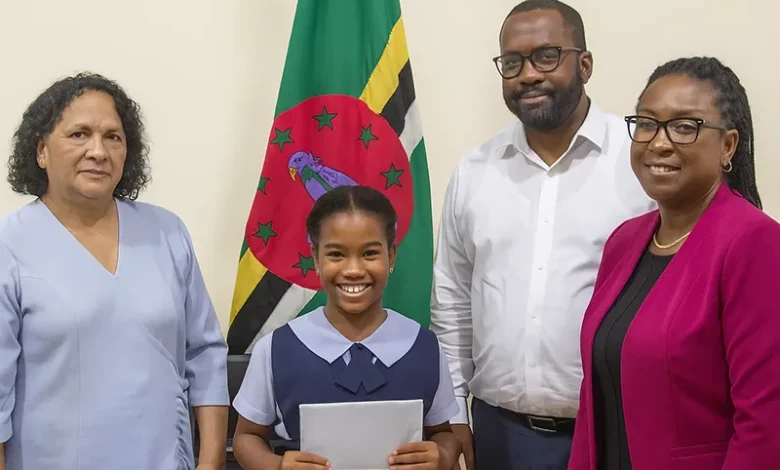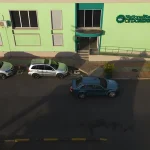Scholarships in Dominica

Scholarships in Dominica support educational advancement across primary, secondary, and tertiary levels. These awards are critical tools for improving access to quality education, reducing inequality, and strengthening the country’s future workforce. Over the years, the volume and diversity of scholarship offerings have grown steadily, backed by government allocations, international partnerships, and private sector initiatives.
National and Government-Funded Scholarship Programs
At the heart of the system is the annual scholarship and bursary programme managed by the Ministry of Education. Awards are issued based on performance in the Caribbean Primary Exit Assessment (CPEA) and the Caribbean Secondary Education Certificate (CSEC) examinations. The structure began modestly in the 1970s and 1980s, when fewer than 50 students received full national scholarships each year. By 2023, the scale of distribution had expanded significantly. Out of 742 Grade 6 students assessed, 86 were awarded full scholarships and 108 received bursaries.
Scholarship recipients are granted EC$1,000 annually to support textbook and school material purchases, while bursary holders receive EC$700. All awards cover full examination fees, and recipients are given placement in top-tier secondary schools. These national scholarships continue through to the end of secondary school, with select students later supported at Dominica State College or other approved institutions.
Regional and International Opportunities for Dominican Students
Dominica has benefited from longstanding partnerships that grant scholarships for overseas study. Many of these began decades ago and remain active today, with students placed in universities across the Caribbean, Europe, Africa, and North America.
- The Cuban Government Scholarship Programme has supported Dominican students since the early 1980s, especially in the fields of medicine, dentistry, and engineering. As of 2015, over 700 Dominicans had graduated from Cuban institutions.
- The Chevening Scholarship from the United Kingdom continues to select Dominican postgraduates annually. As of 2024, there are over 30 Chevening alumni from Dominica.
- The Rebuild Dominica Piney Woods School Scholarship in the United States offers two secondary students full-year boarding school access based on academic merit and financial need.
- Morocco’s government scholarship is relatively new, gaining popularity since 2020 with opportunities for undergraduate and graduate degrees in French and Arabic-speaking institutions.
- Scholarships offered through the Organization of American States (OAS) allow Dominican students to study across the hemisphere but are often underutilized.
Private Sector and Institutional Contributions
The role of private institutions has grown in tandem with state offerings. Banks, energy companies, cooperatives, and civic organizations have developed targeted scholarship initiatives to support students in key disciplines.
- DOMLEC and the National Bank of Dominica have provided regular financial support for students in electrical engineering, business, and environmental studies.
- Dominica State College offers internal merit scholarships based on CAPE performance and academic standing.
- The NCCU Scholarship Programme, introduced in 2013, honors the legacy of Vernice Bellony and supports students whose parents are active members of the cooperative.
These offerings help ensure that not all educational support hinges on government funding, diversifying access points and providing options across subject areas and institutions.
Main Sources of Scholarship Funding in Dominica
- Ministry of Education scholarships (CPEA, CSEC, CAPE)
- International awards (Chevening, Cuba, Morocco, OAS)
- Local private and institutional support (DOMLEC, NCCU, Dominica State College)
Access, Equity, and Future Focus
Scholarships in Dominica contribute significantly to national development. They allow promising students from low-income or rural backgrounds to access high-quality education and, in some cases, study abroad. Most scholarship recipients go on to contribute to the public service, health, education, and legal sectors.
However, the scholarship framework still faces limitations. Awareness remains uneven, especially in remote communities. Many international scholarships, such as those from the OAS and Morocco, suffer from low application numbers due to poor visibility. Students often lack support in completing lengthy application processes.
There have been repeated calls for an integrated digital platform where all national, regional, and international scholarships are listed, with filters for academic level, field of study, and application timelines. Stakeholders also recommend transparent criteria for nominations, particularly for parliamentary scholarships that may be subject to political influence.
As more students pursue tertiary education, policymakers are exploring how scholarships can align with national development plans. New fields such as climate science, digital technologies, and agro-processing are being considered for specialized support. Postgraduate scholarships remain limited, though there are efforts to expand these through new regional and donor agreements.
Improved tracking of alumni progress, better coordination between ministries and partner organizations, and increased investment in promotional campaigns would help modernize the system. With these upgrades, scholarships in Dominica could further contribute to building a skilled, equitable, and competitive society.




